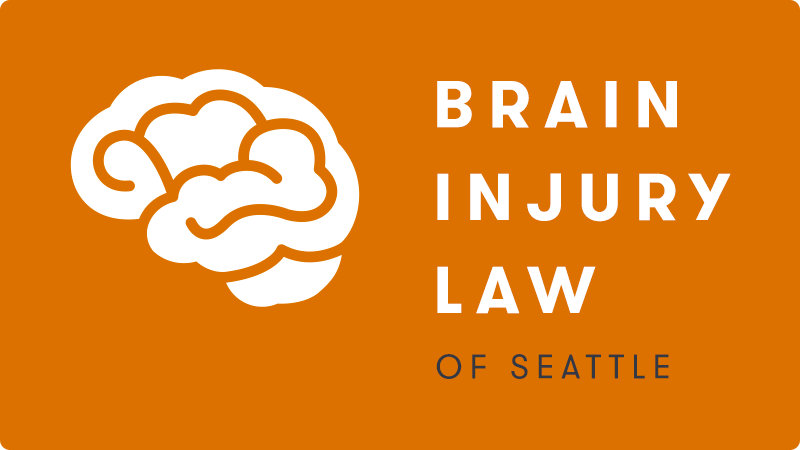Seattle’s Essential Guide To Traumatic Brain Injury (TBI)
According to the CDC, an estimated 1.5 million people suffer from a traumatic brain injury each year — making it a leading cause of death in the United States. Another chilling statistic from the CDC states that 230,000 people are hospitalized due to TBIs and that 50,000 people die from their brain injuries.
These sobering statistics highlight the importance of taking all traumatic brain injuries seriously and getting not only the medical care but also the legal care that your condition requires.
Whether you are looking for traumatic brain injury guidelines or the answer to the question, “What is a TBI, exactly?”, you’ve come to the right place. Continue reading to learn more about where to find brain injury help, to get answers to some of your most pressing questions about TBIs, or get in touch with Brain Injury Law of Seattle to learn about your legal options if you’ve suffered a TBI.
Scott Blair, Founder of Brain Injury Law of Seattle
Page Contents
What is TBI or Traumatic Brain Injury?
What is a traumatic brain injury? A traumatic brain injury (often abbreviated to TBI) is an injury that occurs when the brain sustains trauma. This trauma can result from a number of different causes including assault, falling, being involved in a car accident, and more. Traumatic brain injuries are not only alarmingly common but in many cases are accompanied by dire consequences. TBIs may result in intensely painful short-term or long-term conditions which can permanently disable a victim or alter their personality. Neglecting to seek out medical help following a TBI injury could even be fatal. Another alarming fact about TBIs is that their symptoms may not appear immediately or they may manifest themselves differently in different victims. This can potentially make TBIs difficult to spot, resulting in inaction, and a worsening of consequences overall for the victim when they need care the most.
We Are Local
Seattle
Bellevue
Tacoma
Everett
Edmonds
Lynnwood
Shoreline
Bothell
Woodinville
Redmond
Bellingham
Snoqualmie
Wenatchee
Chelan
Causes of Traumatic Brain Injury
Unfortunately, traumatic brain injuries can be suffered in a plethora of different ways. Daily activities, work, driving, and more all pose a risk of sustaining a traumatic brain injury. Some of the leading causes of TBI brain injuries in the United States include:
- Car accidents
- Slip and fall accidents
- Sports-related injuries
- Workplace accidents
- Medical negligence
- Explosive blasts
- Motorcycle and truck accidents
- Premises liability accidents
- Construction site accidents
- Physical assault
- Whiplash
Common Types of Trauma to the Brain
There are several types of traumatic brain injuries — each of which requires immediate medical attention. Some of the most common types of traumatic brain injuries are outlined in the following sections.
Diffuse Axonal Injury (DAI)
Diffuse axonal injuries occur when the connective nerve fibers (called axons) are torn due to the brain shifting inside of the skull. These types of brain injuries are very serious and usually result in a coma as well as severe damage to various parts of the brain.
Cerebral Lacerations
Cerebral lacerations occur when brain tissue is torn due to trauma to the head. These lacerations usually occur when a foreign object penetrates and tears the brain tissue. While sometimes an object is responsible for penetrating the skull, oftentimes it is the skull itself (if it’s been fractured) that causes the laceration.
Epidural Hematomas (Blood Clots)
A victim of a TBI suffers an epidural hematoma when a blood clot forms in between the skull and the protective brain tissue. These blood clots are brought on when there is trauma to the head that causes the brain to collide with the skull. The tears in the brain’s lining which result from this injury lead to bleeding and the formation of a hematoma.
What is a Concussion?
A concussion is a type of TBI that can occur due to any blow to the head or accident that causes the brain to shift inside of the skull. Though the word is commonly thrown around, concussions are still classified as traumatic brain injuries and thus very serious medical conditions. Concussions can be graded in terms of severity as mild (grade one), moderate (grade two), and severe (grade three). The symptoms of a concussion according to the different grades are as follows:
- Grade one (mild) concussion: symptoms of a grade one concussion include no loss of consciousness and TBI symptoms that last 15-minutes or less.
- Grade three (severe) concussion: symptoms of a severe concussion involve a loss of consciousness lasting for a few seconds or longer.
Misconceptions of Concussions
There are a plethora of misconceptions concerning concussions which have resulted in death, permanent injury, and extensive pain. Some of the most common misconceptions about concussions include:
- A concussion isn’t a TBI. A concussion is both a TBI and a serious enough medical injury that anyone suffering from one should seek out medical attention.
- You cannot get a concussion if you are wearing a helmet. While a helmet will certainly lessen the likelihood of you suffering a TBI, it does not guarantee full protection.
- A concussion will heal on its own. While some concussions may heal naturally on their own, it’s always a best practice to seek out medical attention in the event that your concussion is worse than you thought.
Symptoms of a Traumatic Brain Injury
Traumatic brain injury symptoms can manifest themselves in a number of alarming as well as subtle ways. It’s vital to be aware of and look out for signs of a TBI if you or someone you know has suffered a head injury, as neglecting treatment for a TBI can prove fatal. Some of the most common symptoms of a TBI include:
- Affected cognition (slowed thinking, confusion, brain fog, etc.)
- Poor concentration
- Learning difficulties
- Speech and language problems (including slurred speech)
- Persistent headache
- Blurry or double vision
- Nausea or vomiting
- Dizziness
- Sensitive to light and sound
- Coordination and balancing problems
- Intense fatigue
- Paralysis
- Seizures
- Emotional issues such as irritability, moodiness, sadness, mood swings, etc.
- Depression and anxiety
- Sleep difficulties and unusual sleeping patterns
- Periodic loss of consciousness
- Neck pain
- Ringing in the ears
It is essential (even if you do not experience any of the above-mentioned symptoms) that you still seek out medical attention if you have suffered a head injury — no matter how minor it may at first appear — as some TBI symptoms may not manifest immediately.
Diagnosis of Traumatic Brain Injury
Symptoms of more mild TBIs can be difficult to detect, however, doctors are trained to keep an eye out for all symptoms — even the subtle ones — so that they can help patients towards optimal recovery. Some of the tests or examinations that doctors may take patients through in order to diagnose their traumatic brain injury include:
- Physical exam. The doctor will typically first conduct a physical exam of the patient before moving on to other methods of testing.
- Neurological exam. This is to test the patient's evaluation skills, motor function, coordination, and reflexes.
- Imaging test. While not all TBIs are visible on a CT scan or MRI imaging tests are still a useful way to diagnose patients.
- Ultrasound. Ultrasounds aid doctors in identifying skull fractures which almost always indicate that a TBI has been sustained.
Traumatic Brain Injury Prevention
While in today’s busy and unpredictable world it is impossible to safeguard oneself 100% against the chances of sustaining a TBI, there are certain measures that you can take in order to reduce your chances of suffering a traumatic brain injury. These TBI prevention techniques are:
- Wear a helmet anytime you are biking, motorbiking, or doing any other sport that suggests one.
- Wear a seatbelt every time you drive/ride in a car.
- Always buckle your child in an up-to-date car seat.
- Do not drive under the influence of drugs or alcohol.
- Never text, eat, drink, or talk on the phone while driving.
- Use child safety gates to prevent children from falling down the stairs.
- Use non-slip mats in the bathtub and on shower floors.
- Install handrails on stairways and porches.
- Ensure that there is adequate lighting throughout your home or workspace.
How Our Brain Injury Lawyers Can Help You
Many victims of TBIs sustain their injury either in the workplace, in a public place, or due to the negligence or ill-intent of another person or corporation. In such cases, the victim of the brain injury is entitled to compensation for their injury from the guilty party. However, in order to ensure that you receive just compensation from the responsible party, it’s essential to work with an experienced brain injury attorney who can assist you in overcoming the legal battle of securing adequate compensation from the guilty party. Things that our brain injury lawyers may be able to assist you in receiving compensation for include:
- Medical costs (both present and expected)
- Lost wages
- Pain and suffering
- Punitive damages
- Rehabilitation costs
- Loss of consortium
- Loss of enjoyment of life
- Costs of future care
- Loss of earning capacity
Brain Injury Guidelines
What should I do if I have suffered a traumatic brain injury? If you have been in an accident where you sustained an injury to your head, here are some guidelines you should follow:
- Remove yourself from the situation if you are in danger.
- Get medical attention (call an ambulance or have someone drive you to an urgent care walk-in).
- After you have received medical care and are in a stable condition, find a TBI lawyer to take your case. You may have to see several lawyers before you find the one who will be the best fit for your situation, but don’t lose heart in the search for a lawyer who respects you and listens.
- Avoid speaking with the lawyer of the responsible party or giving any sort of statements that may make the accident look like it was your fault. In general, avoid posting on social media or making any statements to anyone without the approval of your attorney. Giving statements or talking with the legal counsel of the responsible party can cause issues and even damage your case if you aren’t careful.
More On TBI: Learn More about Traumatic Brain Injury
Traumatic Brain Injury (TBI) Symptoms
Proving Traumatic Brain Injury
How to Choose a Brain Injury Lawyer
How Do I Know if I Have a Brain Injury
TBI vs Concussion
How To Deal With Someone With a Brain Injury
Returning to Work After Concussion
What to Do if You Have a Concussion
Post Concussion Syndrome and Treatment
Post Concussion Headaches
Recovering from a Concussion
Anoxic Brain Injury Symptoms
Traumatic Brain Injury and Sleep Disorders
Brain Injury Rehabilitation
How Long Does a Concussion Last
How to Treat a Concussion
Types of Traumatic Brain Injury
Suffering from a Motorcycle Accident Head Injury
Pituitary Gland Damage from Head Injury
Brain Injury Claim Process
How a Personal Injury Attorney Can Help Someone with a Brain Injury
Pituitary Gland Damage
Neuroendocrine Dysfunction (+Webinar): Prevalence and Screening Following Mild TBI
Advancement of Brain Injury Technology Can Help Your Case
How the Pituitary Gland Is Damaged during a Brain Injury
Assistive Technology TBI Prove Invisible Brain Injuries
What Is a Volumetric Analysis of the Brain?
How Can Arterial Spin Labeling (ASL) Help Objectively Document Brain Injury?
Diagnosing Hypopituitarism: How Do Doctors Confirm a Pituitary Gland Injury?
How Can Diffuse Tensor Imaging (DTI) Help Objectively Document a Brain Injury?
Traumatic Brain Injury Facts
Traumatic brain injuries may result in a number of short and long-term health consequences. If a child suffers a TBI, he or she may experience abnormal brain development which affects their cognition and affects them severely later in life. While some people with mild TBIs may be able to fully recover on their own, other people who are victims of more severe TBIs may need ongoing in-home medical care, therapy, and be unable to ever return to the workforce. Other short or long-term effects of TBIs include memory loss, an inability to form new memories, altered personalities, excessive moodiness, physical disability, and more.
Contact a Seasoned Traumatic Brain Injury Attorney Today
If you are in need of the services of a traumatic brain injury attorney, contact Brain Injury Law of Seattle today. Our skilled team of brain injury lawyers is equipped with all the legal knowledge that you will need to succeed in making a case. Our legal experts partner with medical professionals and others to ensure that you get a strong case with high chances of satisfactory compensation for your injury. At Brain Injury Law of Seattle, our empathetic team of legal professionals is ready to help you make the most out of your situation by fighting for you and easing the legal burden that you are facing. Contact our team of brain injury lawyers today to set up a consultation with a legal professional so that you can start moving towards a comfortable, stable, and financially secure future.
Other Areas of Practice in Seattle
Seattle Personal Injury Lawyer | Seattle Brain Injury Lawyer | Seattle Bicycle Accident Lawyer | Seattle Slip and Fall Lawyer | Seattle Truck Accident Lawyer | Seattle Motorcycle Accident Lawyer | Seattle Pedestrian Accident Lawyer | Seattle Catastrophic Injury Lawyers | Seattle Spinal Cord Injury Lawyer | Seattle Bus Accident Lawyer | Seattle Premises Liability Lawyer | Seattle Product Liability Lawyer | Seattle Wrongful Death Lawyer | Seattle Car Accidents Lawyer | Seattle Maritime Injury Lawyer
Frequently Asked Questions
Here are answers to some of the most common questions that our TBI lawyers hear from victims of traumatic brain injuries.

Client Story
M.W., Kent, WA
"M.W. was riding his bicycle in a bike lane in Kent. He was a 24 year old elite cyclist in excellent shape. A driver of a truck in the lane next to him suddenly turned right and nicked M.W., making him fall off his bike. He was wearing his helmet. However, when he fell to the ground, his head struck the pavement along with his left shoulder. "

Contact Brain Injury Law
Call or email us for a free consultation, and find out how we can help you get your life back following a brain injury. We are here to help, answer questions, and educate you about what you have to look forward to. We have the medical and legal knowledge to tell you what you are facing and how you can be helped. We pledge to always tell you like it is so you can make informed decisions about your brain injury and how best to help yourself. This is what we do.


